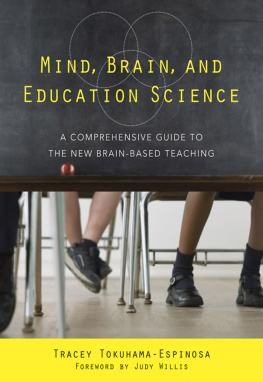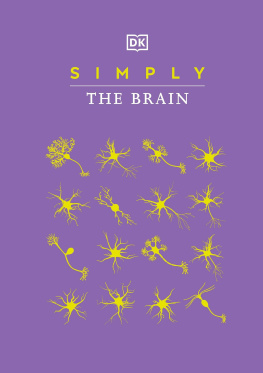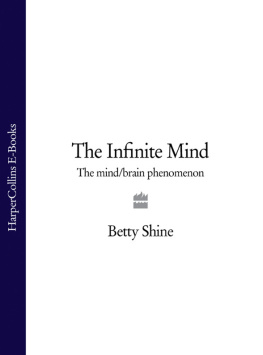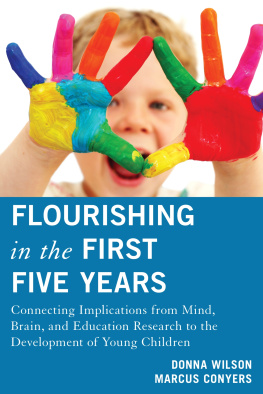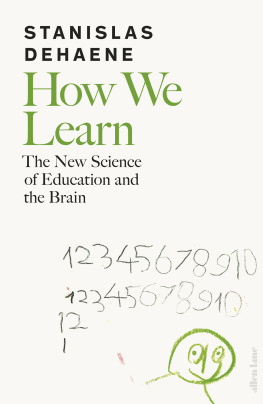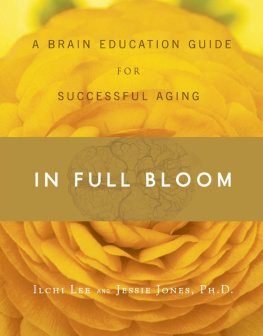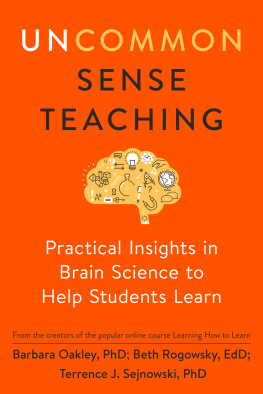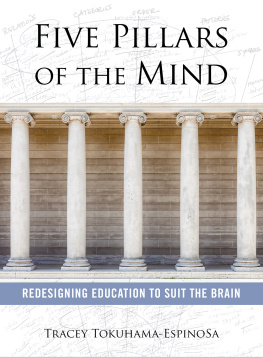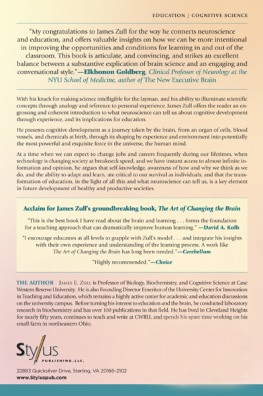Tokuhama-Espinosa - Mind, Brain, and Education Science: A Comprehensive Guide to the New Brain-Based Teaching
Here you can read online Tokuhama-Espinosa - Mind, Brain, and Education Science: A Comprehensive Guide to the New Brain-Based Teaching full text of the book (entire story) in english for free. Download pdf and epub, get meaning, cover and reviews about this ebook. year: 2011, publisher: W. W. Norton & Company, genre: Religion. Description of the work, (preface) as well as reviews are available. Best literature library LitArk.com created for fans of good reading and offers a wide selection of genres:
Romance novel
Science fiction
Adventure
Detective
Science
History
Home and family
Prose
Art
Politics
Computer
Non-fiction
Religion
Business
Children
Humor
Choose a favorite category and find really read worthwhile books. Enjoy immersion in the world of imagination, feel the emotions of the characters or learn something new for yourself, make an fascinating discovery.
- Book:Mind, Brain, and Education Science: A Comprehensive Guide to the New Brain-Based Teaching
- Author:
- Publisher:W. W. Norton & Company
- Genre:
- Year:2011
- Rating:4 / 5
- Favourites:Add to favourites
- Your mark:
Mind, Brain, and Education Science: A Comprehensive Guide to the New Brain-Based Teaching: summary, description and annotation
We offer to read an annotation, description, summary or preface (depends on what the author of the book "Mind, Brain, and Education Science: A Comprehensive Guide to the New Brain-Based Teaching" wrote himself). If you haven't found the necessary information about the book — write in the comments, we will try to find it.
Establishing the parameters and goals of the new field of mind, brain, and education science.A groundbreaking work, Mind, Brain, and Education Science explains the new transdisciplinary academic field that has grown out of the intersection of neuroscience, education, and psychology. The trend in brain-based teaching has been growing for the past twenty years and has exploded in the past five to become the most authoritative pedagogy for best learning results. Aimed at teachers, teacher trainers and policy makers, and anyone interested in the future of education in America and beyond, Mind, Brain, and Education Science responds to the clamor for help in identifying what information could and should apply in classrooms with confidence, and what information is simply commercial hype. Combining an exhaustive review of the literature, as well as interviews with over twenty thought leaders in the field from six different countries, this book describes the birth and...
Tokuhama-Espinosa: author's other books
Who wrote Mind, Brain, and Education Science: A Comprehensive Guide to the New Brain-Based Teaching? Find out the surname, the name of the author of the book and a list of all author's works by series.

